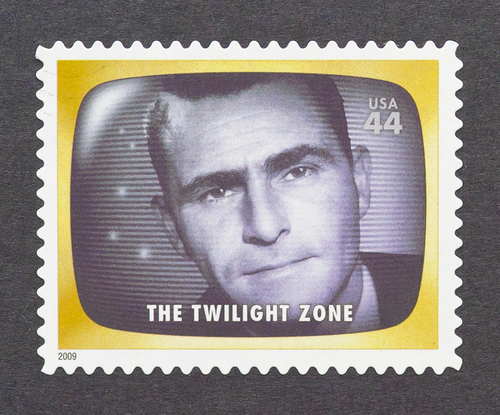Frustrated by censors, Serling went a different route, with great success.
The original “Twilight Zone” series was unlike anything anyone had ever seen on television. Airing from 1959 to 1964, the sci-fi/horror show frequently referenced in popular culture and cited as one of the best TV shows of all time was the brainchild of Rod Serling.
Serling’s inspiration for the show wasn’t rooted in science fiction or cinematic horror, but rather in the dark reality of American racism
In 1955, Emmett Till, a 14-year-old African American boy from Chicago, was brutally murdered while visiting relatives in Mississippi. Till had been accused of flirting with a white woman in a store, and the woman’s husband and his half-brother kidnapped, mutilated and lynched Till for his “crime.” The two men were arrested and a trial was held, but the all-white, all-male jury acquitted the two men of all charges after less than an hour’s deliberations.
Till’s mother courageously fought for Emmett’s story to be told, and she insisted his funeral be open-casket so the world could see what those men had done to her son. Photographs from the funeral made national news and galvanized people across the country, fanning the early sparks of the Civil Rights Movement.
Serling, who was 30 years old at the time, watched Till’s story play out in the news. A rising star in the television world, Serling set out to write a teleplay that addressed the racism at the heart of Till’s murder. In an interview with Mike Wallace, Serling explained how he’d written a show sponsored by U.S. Steel, and by the time the censors were finished with it, the script was a “lukewarm, vitiated, emasculated” version of what he’d originally created. Every reference to Black or white, the South and anything that even slightly alluded to the South was changed or removed. (Serling describes the censors removing Coca-Cola bottles from a scene because they might have too much of a Southern connotation.)
“It bore no relationship at all to what we had purported to say initially,” he told Wallace.
Serling fought back, but ultimately the money holds the power. He felt forced to accept it, though he voiced his feelings about censorship of challenging themes.
“I think it’s criminal that we’re not permitted to make dramatic note of social evils as they exist, of controversial themes as they are inherent in our society,” he told Wallace. “I think it’s ridiculous that drama, which by its very nature should make a comment on those things that affect our daily lives, and is in the position, at least in terms of television drama, to take a stand.”
This article appears in its entirety along with the You Tube video of the Mike Wallace interview at the website Upworthy . It can be read here.
